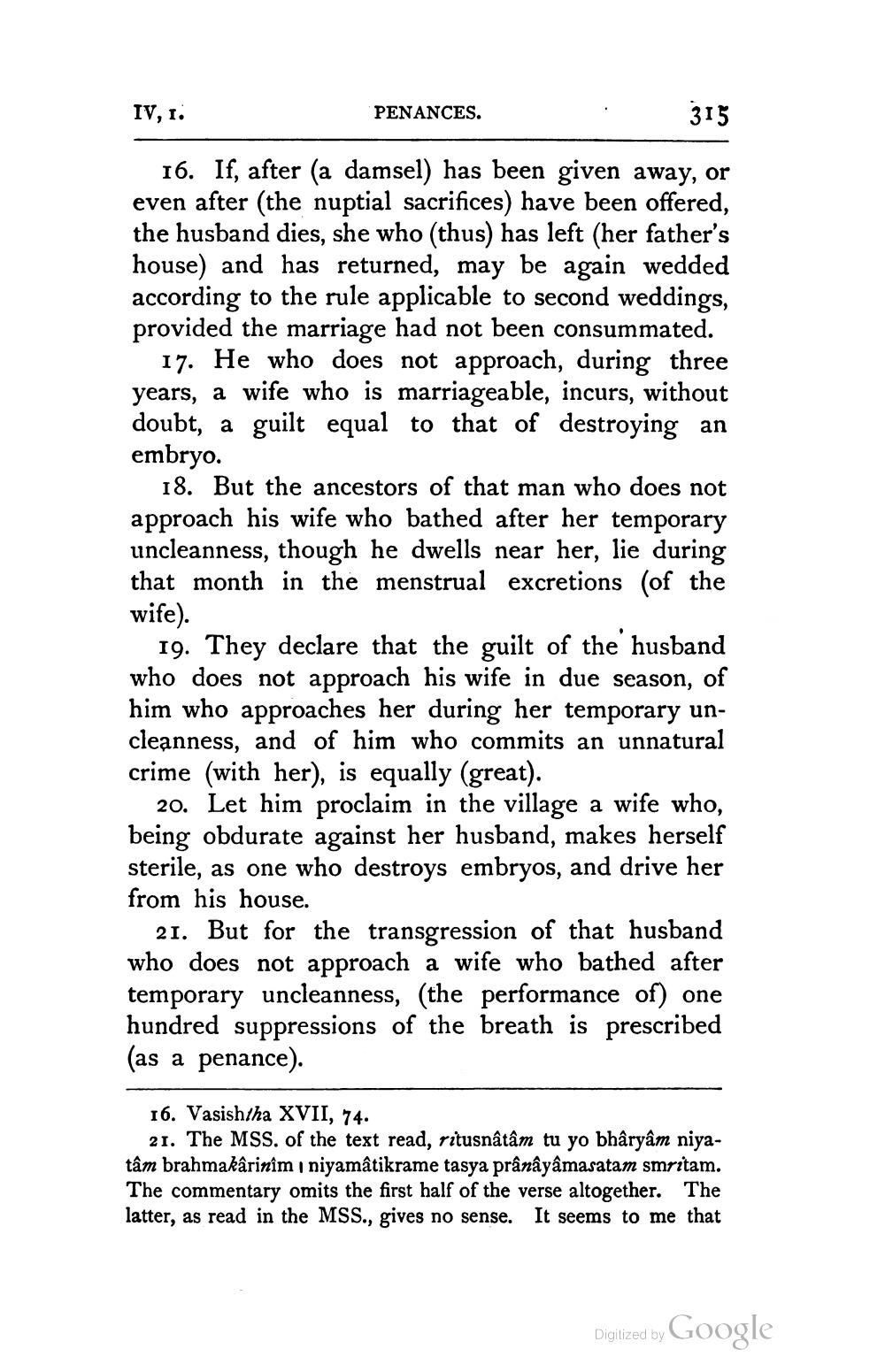________________
IV, 1.
PENANCES.
-
315
16. If, after (a damsel) has been given away, or even after (the nuptial sacrifices) have been offered, the husband dies, she who (thus) has left (her father's house) and has returned, may be again wedded according to the rule applicable to second weddings, provided the marriage had not been consummated.
17. He who does not approach, during three years, a wife who is marriageable, incurs, without doubt, a guilt equal to that of destroying an embryo.
18. But the ancestors of that man who does not approach his wife who bathed after her temporary uncleanness, though he dwells near her, lie during that month in the menstrual excretions (of the wife).
19. They declare that the guilt of the husband who does not approach his wife in due season, of him who approaches her during her temporary uncleanness, and of him who commits an unnatural crime (with her), is equally (great).
20. Let him proclaim in the village a wife who, being obdurate against her husband, makes herself sterile, as one who destroys embryos, and drive her from his house.
21. But for the transgression of that husband who does not approach a wife who bathed after temporary uncleanness, (the performance of) one hundred suppressions of the breath is prescribed (as a penance).
16. Vasishtha XVII, 74.
21. The MSS. of the text read, ritusnâtâm tu yo bhâryâm niyatâm brahmakârinimịniyamatikrame tasya prânâyẩmaratam smritam. The commentary omits the first half of the verse altogether. The latter, as read in the MSS., gives no sense. It seems to me that
Digitized by Google




